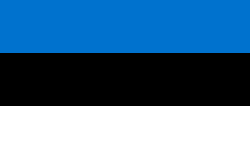| 1998 in Estonian football | ||
|---|---|---|
  | ||
| Meistriliiga champions | ||
| FC Flora Tallinn (1997–1998) FC Flora Tallinn (1998) | ||
| Esiliiga champions | ||
| FC Vall Tallinn (1997–1998) FC Levadia Maardu (1998) | ||
| Estonian Cup winners | ||
| FC Flora Tallinn | ||
| Estonian Super Cup winners | ||
| FC Flora Tallinn | ||
| Teams in Europe | ||
| FC Flora Tallinn FC Lantana Tallinn Tallinna Sadam JK | ||
| Estonian national team | ||
| 1998 Baltic Cup 2000 UEFA Euro qualifying | ||
| Estonian Footballer of the Year | ||
| Mart Poom |
The 1998 season was the seventh full year of competitive football (soccer) in Estonia since gaining independence from the Soviet Union on 20 August 1991.